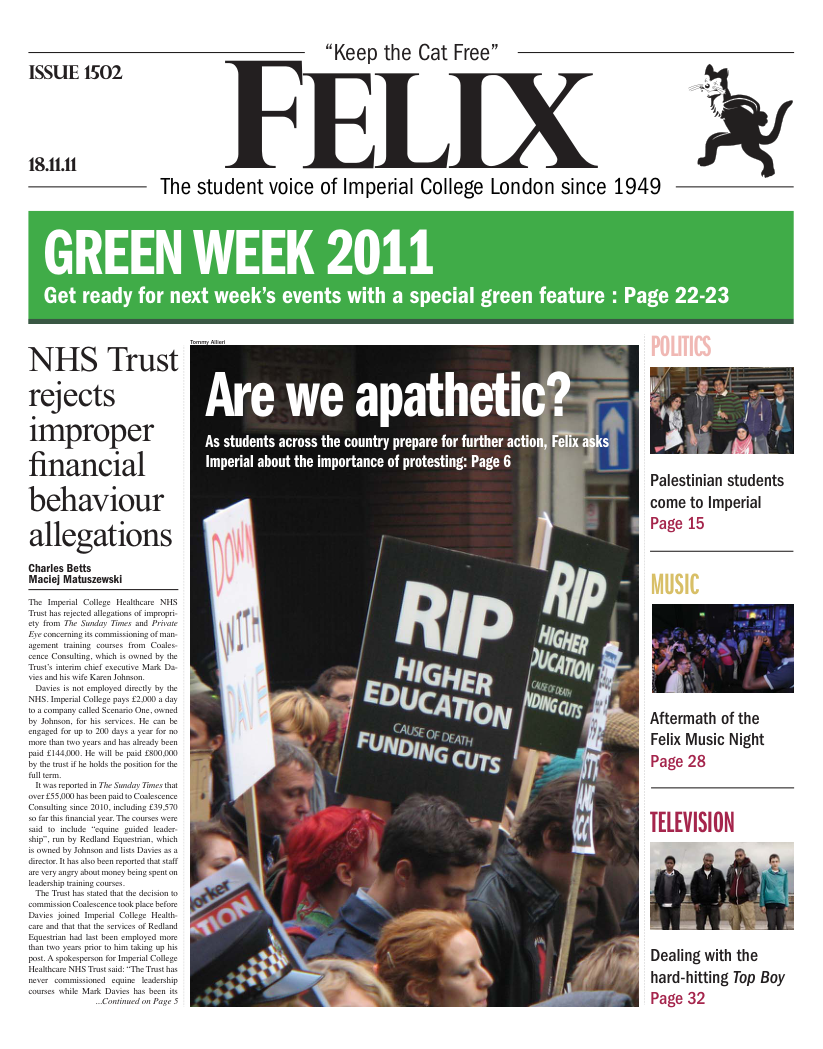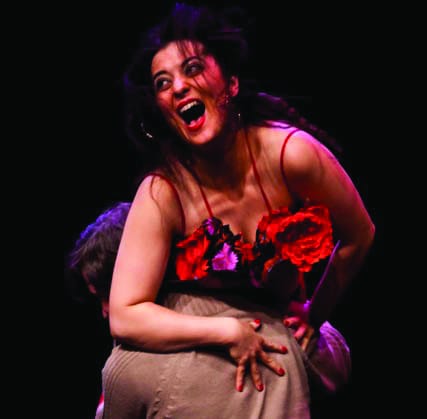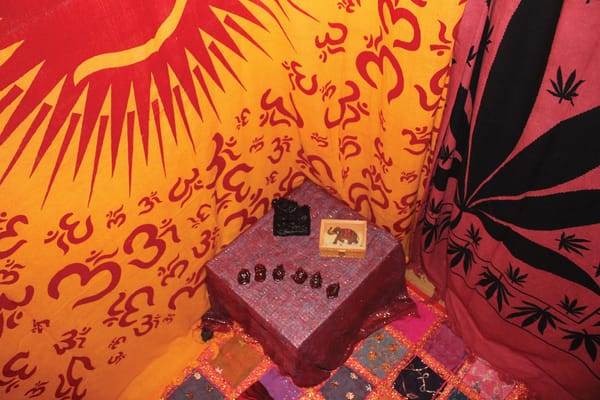13: Unlucky for most?
Fresh from the successes of Earthquakes in London, Mike Bartlett's new play takes a new angle of government, protest and personal responsibility

The lights dimmed, an enigmatic black cube began to descend from the ceiling, and a voice whispered unsettlingly, “You know when you’re in that deep sleep…” At this point, the production Felix saw suddenly halted – a technical glitch we were told that would be swiftly resolved. Whilst the superstitious amongst us would have us believe that something like this was inevitable, given the name of the National Theatre’s new play 13, once restarted the play rarely faltered, and proved hypnotising throughout. Playwright Mike Bartlett’s newest endeavour is an ambitious one, at once attempting to interweave social commentary with real human drama, profound philosophising with blockbuster staging, whilst all the while trying to hold it together with a narrative that actually makes sense. And against all the odds, it largely succeeds.
In a parallel but all too familiar London, people from all walks of life have been having the same nightmare – one with monsters, chaos and explosions. They can’t sleep. In this atmosphere of unrest and disquiet director Thea Sharrock introduces us to a slew of characters that paint the picture of a deeply unhappy London. ‘Britain’s ugly’ quips an American child as she visits for the first time, a sentiment echoed by its inhabitants throughout the play. But the discontent isn’t limited to our four shores – Iran’s the same, and elements in Westminster and Washington quite fancy a war there- apparently afraid of the prospect of a nuclear armed Tehran. In the midst of a public that is largely ‘unemployed and pissed off,’ (not to mention – very sleep deprived) there comes an unassuming people’s prophet: ‘John in the Park.’ As the play progresses we watch to see whether this generation really can affect a change, or whether they’ll once again resign themselves to the will of the controlling powers.
With disarmingly frank discussions on God and religion, it's far more thought provoking than your average drama.
Though occasionally teetering on juggling too many character arcs, the play is by and large quite engaging – aided by seamless transitions, short and snappy scenes, and a rather unique set. Said ‘set’ is really just a massive black box that rotates according to the setting – bringing new characters on and off in a silent whirl, and giving a contextual but sparse backdrop to scenes that demand it. It is never overbearing nor gimmicky, but serves to streamline what is actually quite a long play at two and a half hours. However the play only rarely drags with fast paced set pieces like the club-dance number, and the rather hilarious rendition of Rihanna’s ‘Only Girl in the World.’ The acting too is universally good, with perhaps one exception, that of Kirsty Bushell’s rather pre-emptive ‘Rachel’. Instead of acting well, she decided to spend her time onstage experimenting with ‘inTEReSTIng’ intonation. The standout performer however was Adam James; at once effortlessly convincing, utterly compelling and genuinely moving – even without a sympathetic role. This is an actor at the top of his game.
The play is not flawless though. Since it serves both as a character-based drama, and a philosophically-minded social commentator, it cannot fulfil either role to its utmost. As well as this there are characters who, whilst well acted and entertaining don’t really add to the narrative in any meaningful way. But in a sense its ‘weaknesses’ are also its greatest strengths. The surplus of characters ensure that the play never becomes humourless, and with disarmingly frank discussions on God and religion, it is inevitably far more thought provoking than the average drama, whilst giving a human heart to well reasoned discussions. The real danger lay in the possibility that it would become preachy and moralising, especially in the second half, which was largely a debate between two opposing ideologies. But the two viewpoints are so well represented that one can’t really fault it, as well as helpfully delivered by characters that you actually believe in. With a spine chilling and all too realistic climax, the play ends with the same excitement that defined its best moments. Having drawn you into a superbly well crafted human drama, Mike Bartlett’s 13 leaves you debating the questions raised for the entire journey home. Not perfect, but very good, and highly recommended.
13 runs at the National Theatre until January 8 2012, tickets from £5







